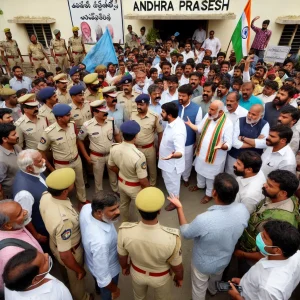
HYDERABAD: The recent trend of political parties in Andhra Pradesh and Telangana resorting to “bookkeeping” tactics to document alleged harassment by opposing governments is a troubling sign. While holding those in power accountable is essential for a healthy democracy, the “red book” and “pink book” strategies employed by the TDP and BRS, respectively, risk devolving into unproductive cycles of vendetta that ultimately distract from the core responsibilities of governance.
Following TDP National General Secretary Nara Lokesh’s “red book,” meant to list police officers accused of targeting TDP members, BRS MLC Kavitha Kalvakuntla has announced a “pink book” to record instances of alleged harassment of BRS leaders by the Congress government in Telangana. Kavitha claims the Congress government is targeting BRS leaders and has been arresting people who are commenting against them on social media.
This tit-for-tat approach raises critical questions about the priorities of these political actors. Are they genuinely focused on serving the people who elected them, or are they more consumed with settling old scores and preparing for future battles? While documenting injustices can be a legitimate tool for advocacy and reform, it should not become the primary focus of opposition parties. When political energy is channeled into compiling lists of grievances and plotting revenge, it inevitably detracts from the more pressing tasks of proposing constructive solutions to the challenges facing the state.
Moreover, the “bookkeeping” approach risks perpetuating a climate of fear and intimidation. If government officials believe they will be personally targeted for carrying out their duties, it could lead to selective enforcement of laws and a reluctance to make difficult but necessary decisions. This, in turn, can undermine the rule of law and erode public trust in institutions. The remarks by Kavitha are troubling, because she claims even people who are posting comments are being arrested.
Ultimately, the responsibility of governing lies in addressing the needs of the populace, fostering economic growth, and ensuring social justice. It requires a willingness to engage in constructive dialogue, to compromise, and to prioritize the common good over partisan interests. While opposition parties play a crucial role in holding those in power accountable, their efforts should be directed toward proposing alternative policies, scrutinizing government actions, and mobilizing public support for positive change. “Even if someone posts a comment on Twitter or Facebook against the government, the police are immediately arresting them,” Kavitha claimed.
The “red book” and “pink book” strategies may provide short-term political gains by galvanizing party supporters and fueling outrage against the opposition. However, in the long run, they contribute to a toxic political environment that undermines effective governance and ultimately harms the very people they claim to serve. What’s more important than political jabs is ensuring the state’s citizens are taken care of.
It is time for political leaders in both Andhra Pradesh and Telangana to move beyond the politics of vendetta and focus on the real work of building a better future for their states. The people deserve leaders who are committed to serving their interests, not settling scores.




